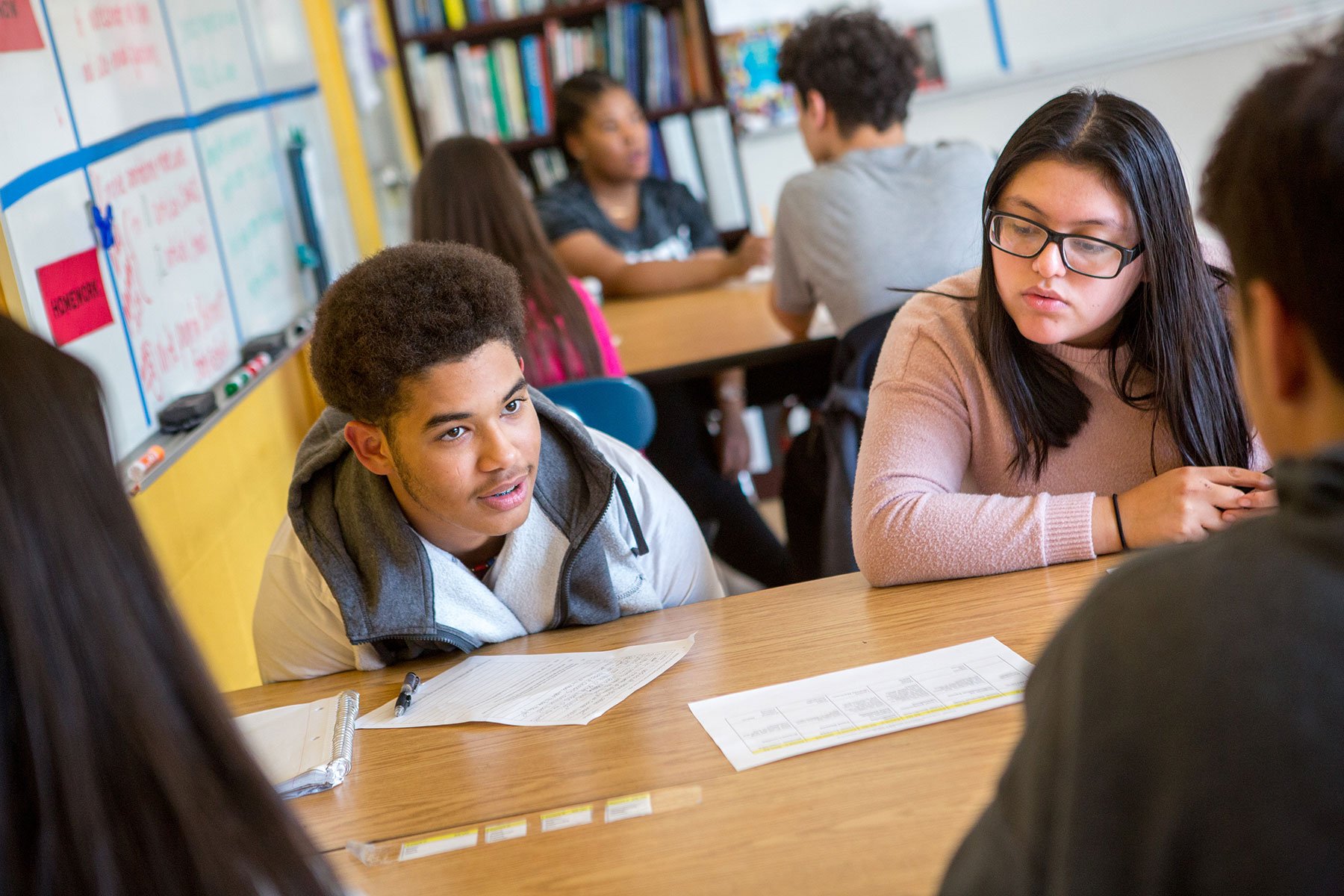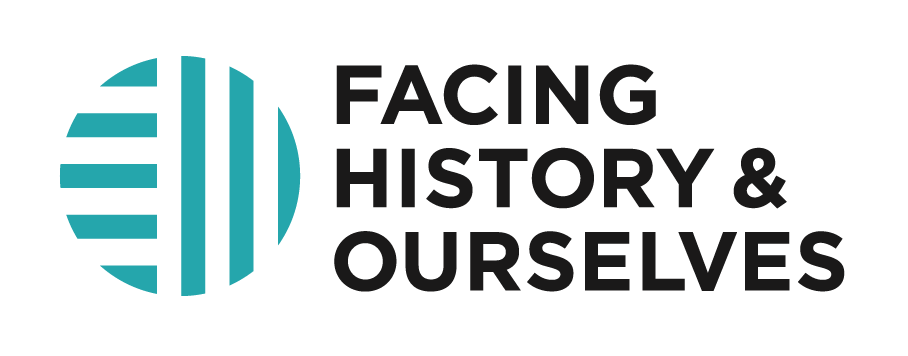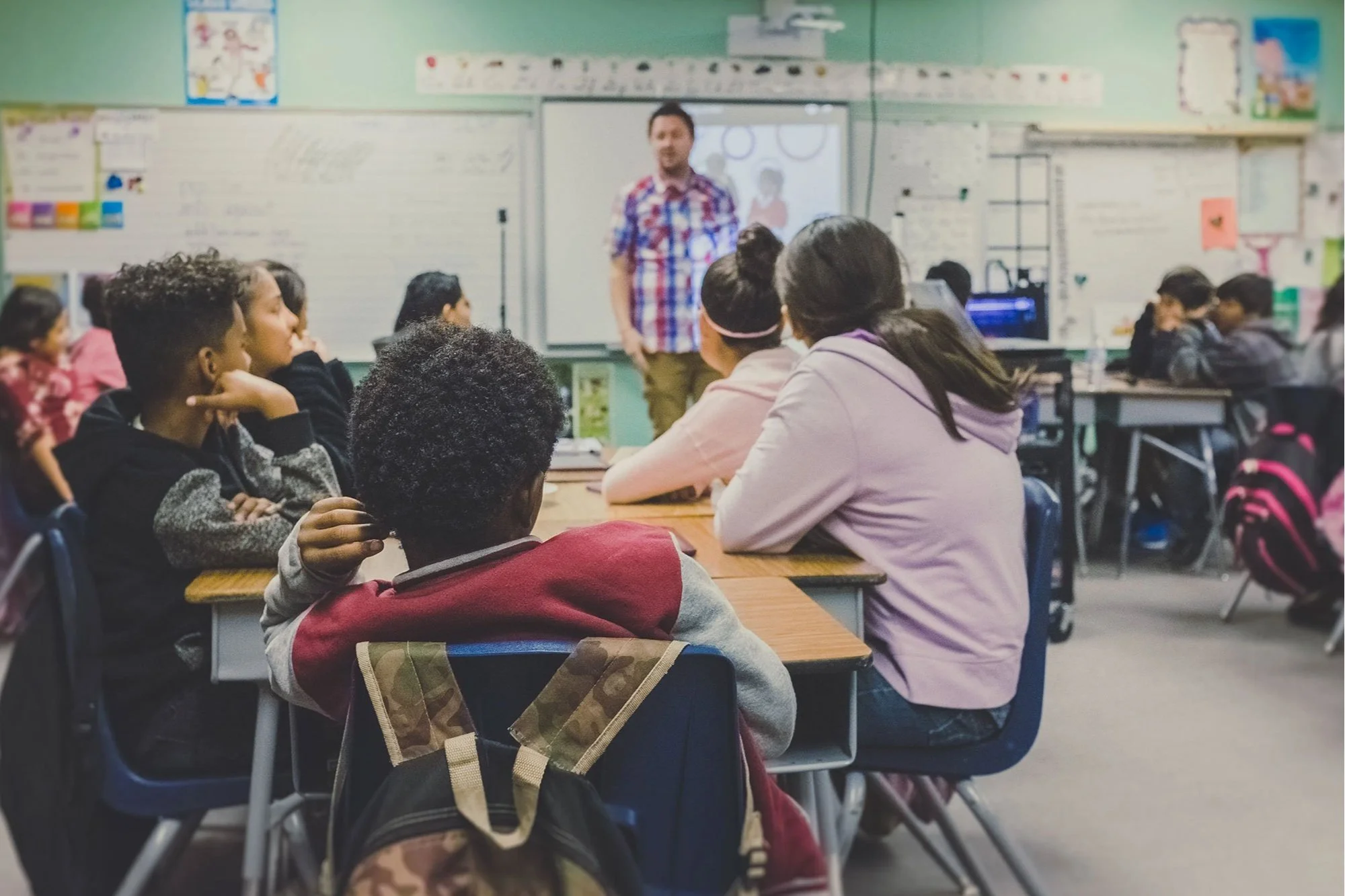
Supplemental K-12 Resources
Featured in this section are guides from Facing History & Ourselves, U.S. Holocaust Museum, and Not In Our School.
Facing History and Ourselves: Lesson Plans and Resources
-
Use this mini-lesson to introduce students to contemporary examples of Holocaust trivialization and prompt reflection on the question “What are the implications of comparing current events to the Holocaust?”
Lesson Plan -
This mini-lesson explores celebrity influence and online hate, specifically antisemitism.
Lesson Plan → -
Use this Explainer and Tropes Chart to help students understand what antisemitism is, how it shows up in contemporary settings, why it persists, and how it impacts individuals and communities.
Lesson Plan → -
Students explore ways that young people experience and stand up to antisemitism by examining recent research and exploring stories of young upstanders.
Lesson Plan → -
Students learn about the overall rise in acts of hate in schools and examine a story that illustrates how acts of antisemitism, racism, and other forms of hate can overlap.
U.S. Holocaust Museum: Lesson Plans and Resources
-
Teaching about the Holocaust can inspire students to think critically about the past and their own roles and responsibilities today. Find resources to help you develop your approach and lesson plans to use in your classroom at the US Holocaust Museum website.
Getting Started Guide → -
This 38-minute film examines the Nazis’ rise and consolidation of power in Germany. By providing a concise overview of the Holocaust and those involved, this resource is intended to provoke reflection and discussion about the role of ordinary people, institutions, and nations between 1918 and 1945.
-
This lesson from the US Holocaust Museum focuses on the history of antisemitism and its role in the Holocaust to better understand how prejudice and hate speech can contribute to violence, mass atrocity, and genocide. Learning about the origins of hatred and prejudice encourages students to think critically about antisemitism today.
Lesson Plan → -
The Holocaust was the systematic, state-sponsored persecution and murder of six million European Jews by the Nazi German regime and its allies and collaborators. The Holocaust was an evolving process that took place throughout Europe between 1933 and 1945.
-
These short videos explore antisemitism today and how it has persisted for thousands of years.
Watch Videos →
Addressing Islamophobia and Antisemitism in K–12 Schools
Amid division over the war in Israel and Gaza, how can we reinforce core values of empathy, care for each other, and a rejection of hate in our classrooms, schools, homes, and communities?
Not In Our School (NIOS) offers the following supplemental resources for educators and parents to help students respond to harmful acts of hate targeting Arab American, Jewish, and Muslim students:
Guidelines for Addressing Islamophobia and Antisemitism in K-12 Schools
Teachers can help reduce bullying and stereotyping and ensure that all students feel a sense of belonging in school. (Written by Becki Cohn-Vargas. Provided courtesy of Edutopia.org.)
Lessons on Combatting Antisemitism & Anti-Muslim Sentiment at School
Resources, lessons, and exercises designed to help educators address Islamophobia and antisemitism in K-12 Schools. (Compiled by NIOS Education Advisors Jamie Lott-Jones and Mary Sok. Photo by Allison Shelley/The Verbatim Agency for EDUimages)
How to Start a Not In Our School Club
A Not In Our School (NIOS) club is a group of students committed to leading activities that address bullying and intolerance and promote a safe, accepting, and inclusive school community.
Also in this section (For Schools):
Supplemental K-12 Resources





